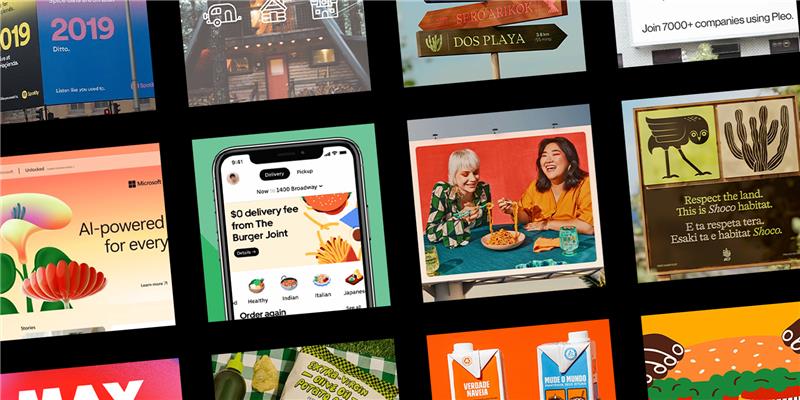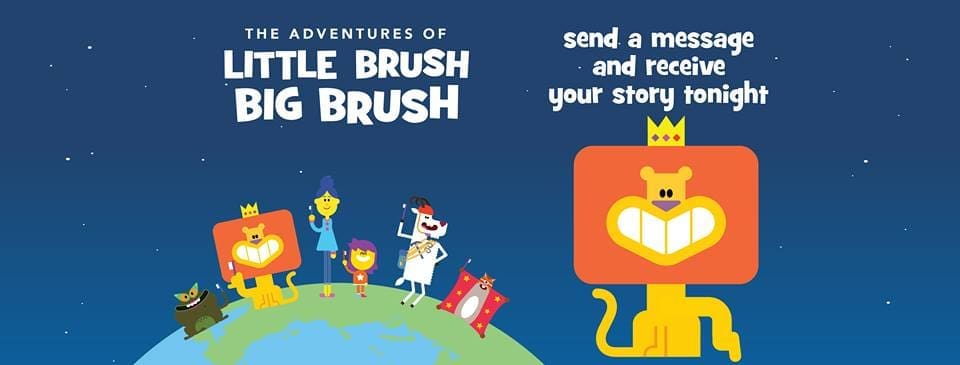
Delight your audiences as they move through the journey to purchase with creative that matches their intent, aligns with strategic insights.

Earlier in the year, Facebook announced the launch of Bots for Messenger, designed to help businesses communicate more easily with their customers. Mark Zuckerberg led the reveal, saying: “I’ve never met anyone who likes calling a business, and no one wants to have to install a new app for every service or business they want to interact with…We think you should just be able to message a business, just as you would a friend.”
Since the chatbot service launched, developers have created more than 11,000 robots, with brands like Manchester City, HP, the Guardian and Domino’s all signing up.
Unilever-owned oral care brand Signal is the latest to join the ranks, creating a Facebook bot that uses interactive storytelling to encourage children to brush their teeth properly. Entitled ‘Little Brush, Big Brush’, the campaign offers parents access to a series of 21 free animations, which are tailored to the family and sent each evening to their phone.
To subscribe, parents must first visit Signal’s Facebook page and click on the ‘Message’ button to activate the chatbot. They will then be asked a short series of questions such as the time of day they would like to receive each new animation and their children’s names, etc.

The ‘Little Brush, Big Brush’ series tells the story of a family that are transported to a magical world inhibited by quirky animal characters, and each episode is set in various countries across the globe. Children, with their parents’ help, must complete brushing challenges to unlock special rewards and take them to the next episode.
Unilever is hoping to drive behavioural change through the campaign, educating parents and children in why it’s so important to brush for two minutes, twice a day. The chatbot has already been integrated with Signal’s school initiative which uses education to empower more children to spread the message of oral health within their families and communities, in developing countries also.
Subscribe to our monthly newsletter.
When Bots for Messenger was initially rolled out, there was some scepticism around its AI capabilities, and whether or not customers would use it. Facebook was keen for it to have an easy-to-use, mass market appeal, but some critics within the industry (particularly within the developer community), likened the initiative to Microsoft Office’s ‘Clippy’ of the 90s. Some also criticised the natural language processing of the bots, saying it wasn’t yet ready to go mainstream.
But in the months following, there has been a great deal of innovation within the space, and the Signal campaign is an example of how the technology can be used creatively for brand building and audience engagement. Having signed up for the ‘Little Brush, Big Brush’ service, it was a quick and simple process, which appeared naturally conversational. The children are eager to receive their first episode this evening!
Another great example of Message bot usage is the free ‘DoNotPay’ chatbot, which has reportedly turned over 160,000 parking tickets in London and New York. Created by London-born Stanford student Joshua Browder, the bot was initially intended to help people appeal against fines for unpaid parking tickets. Dubbed “the world’s first robot lawyer”, Browder later programmed it to deal with a wider range of legal issues, such as claiming for delayed flights and trains and payment protection insurance (PPI). Most recently, the service has now been extended to help tackle issues affecting the homeless.
To see chatbots being used for meaningful impact and behavioural change is a positive development, and an approach that we believe could be immensely successful.
Delight your audiences as they move through the journey to purchase with creative that matches their intent, aligns with strategic insights.
Delight your audiences as they move through the journey to purchase with creative that matches their intent, aligns with strategic insights.
Subscribe to our monthly newsletter.